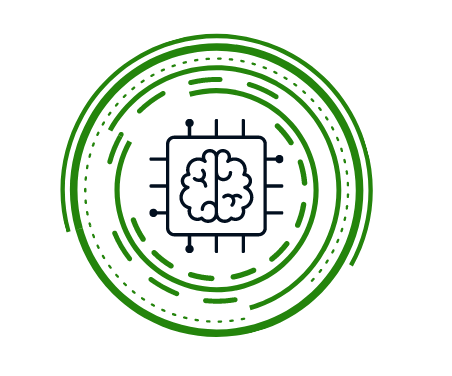When I encountered the serene landscapes of Linyuan in a vivid dream, I couldn’t shake off the eerie feeling of resonance. It felt like more than just a fleeting imagination; it felt significant. What if our dreams are messages waiting to be deciphered? In this post, we’ll explore the intricate patterns and potential meanings that A Dream in Linyuan Linyuanyimeng might hold for you. Through cultural lenses and personal reflections, let’s embark on this journey of understanding. Through various anecdotes and insights, I will share why dreams are not just random occurrences but significant reflections of our subconscious, especially in a culturally rich context like that of Linyuan.
What Does a Dream in Linyuan Represent?
When you A Dream in Linyuan Linyuanyimeng, what are the underlying messages? Dreams can be complex, filled with symbols and meanings. This is especially true for a region as culturally rich as Linyuan. Here, we’ll explore the cultural narratives of Linyuan, symbolism found in dreams, and common elements that arise. By the end, you’ll have a greater appreciation for the dreamworld of Linyuan.
1. Exploring Linyuan’s Cultural Narratives
Linyuan holds a significant place in Chinese culture. It’s a landscape woven into various stories and artistic expressions. Think about traditional Chinese poetry many verses highlight the beauty of nature. In legends, the serene Linyuan environment acts as a backdrop for pivotal moments.
Have you ever heard of the ancient tales that talk about harmony with nature? They often express a yearning for balance and peace. Such stories influence dreams. When Linyuan appears in your dreams, it might signal a need to reconnect with your roots.
2. Symbolism of Landscapes in Dreams
Landscapes in dreams can stand for many things. They often symbolize your emotions, thoughts, and experiences. In Linyuan’s case, the lush fields and tranquil waters can represent peace and calmness. But, they can also showcase your desire for harmony in a chaotic world.
- Mountains: Often signify challenges or obstacles. In the context of Linyuan, they can also indicate stability and enduring strength.
- Water: This element can symbolize emotions. Clearwater denotes clarity of mind, while turbulent waters may reflect insecurity.
- Flora: Rich vegetation signifies growth. It can represent personal development, creativity, or new opportunities.
Have you felt a certain way when you encounter these elements in your dreams? They pull at your subconscious, revealing your true feelings.
3. Common Elements Found in Linyuan Dreams
When dreaming about Linyuan, you might notice recurring themes. Some common dream elements are:
- Nature Resplendence: Expect to witness vivid scenes filled with flowers, green hills, and gentle rivers.
- Local Art: Artistic interpretations often depict Linyuan, showcasing its beauty. Seeing a painting in your dream might suggest creativity bubbling inside you.
- Peaceful People: Encounter calm, welcoming figures. They usually symbolize support in your waking life.
These elements help create a vivid dream experience. They often serve as metaphors for aspects of your life that need attention or reflection.
Connecting Dreams to Your Life
Diving deeper into dreams can reveal insights about yourself. Linyuan dreams encourage you to embrace the stillness. Are you feeling overwhelmed with life’s demands? Perhaps your subconscious is urging you to seek tranquility.
“Dreams are the touchstones of our character.” – Henry David Thoreau
This quote resonates with the insights you gather from your dreams. Each element represents a facet of your character. So, what do your Linyuan dreams say about you?
| Dream Element | Possible Meaning |
| Mountains | Challenges to overcome |
| Water | Emotional state |
| Flowers | Growth and creativity |
| Local Art | Personal expression |
| Peaceful People | Need for support |
Understanding Linyuan’s dream representations can guide your self-discovery. Each dream opens a window into your emotions and thoughts, propelling your personal growth. So the next time Linyuan graces your dreams, take a moment to reflect and listen.
Cultural Context: The Importance of Dreams in Chinese Traditions

The significance of dreams in various cultural contexts is a fascinating topic. In Chinese traditions, dreams are not just nightly occurrences; they hold profound meaning. Understanding their cultural context can shed light on the historical significance of dreams and the beliefs surrounding them. Let’s explore how dreams have woven their way into the fabric of Chinese culture, particularly in Linyuan.
1. Historical Significance of Dreams
Historically, dreams have played a crucial role in Chinese society. Ancient texts like the “Book of Dreams,” written during the Han Dynasty, illustrate this point well. These texts discuss how dreams were seen as messages from the divine or ancestors. They served as vital guides for personal behavior and community decisions.
Could you imagine how people relied on their dreams to inform them about the future? Dreams were thought to reveal hidden truths. They were often consulted before significant decisions like marriage or business ventures. This deep-seated belief in the power of dreams showcases their importance in historical contexts.
2. Folk Beliefs Around Dreaming in Linyuan
In Linyuan, the significance of dreams carries unique folk beliefs. Local traditions hold that dreams can impact daily life in various ways. For instance, certain dreams are thought to bring good fortune, while others may predict misfortune. Here are some common beliefs:
- Dreams of ancestors: Seeing a deceased loved one can symbolize guidance or a warning.
- Animals in dreams: Certain animals represent different omens. For example, dreaming of a rabbit may signify wealth.
- Recurring dreams: These are viewed as urgent messages needing interpretation.
These beliefs reflect how dreams are intertwined with identity and culture in Linyuan. Who hasn’t wondered if their dreams were whispering secrets? From ancient times to today, locals often discuss their dreams with family members, seeking interpretation and understanding.
3. Cultural Practices in Dream Interpretation
Dream interpretation in China, particularly in Linyuan, is rich with cultural practices. It’s common for families to have a member designated as the dream interpreter. This role is often passed down through generations, emphasizing the value placed on understanding dreams.
Different methods exist for interpreting dreams, ranging from the use of pig bones to casting lots. Often, interpretators link dream scenarios with real-life situations, creating a unique analysis.
In a sense, dream interpretation can be likened to storytelling. Dreams are a chance to reflect on your life and make sense of your feelings. In Linyuan, many people draw connections between their dreams and events in their waking life. That way, they can find peace or guidance.
“Dreams are the royal road to the unconscious.” – Sigmund Freud
This quote by Freud emphasizes the importance of unraveling dream meaning. In Linyuan, this mental road is often traveled with family and friends who share in the experience. This collective exploration adds a social dimension, reinforcing community bonds.
4. The Global Perspective
While we focus on Linyuan, it’s important to realize that dream interpretation varies across cultures. In some societies, dreams hold no weight, while in others, like in many Indigenous cultures, they are vital for spiritual insight. Understanding these differences can broaden your appreciation for the significance of dreams worldwide.
As you reflect on these various cultural interpretations of dreams, what comes to your mind? Is it a personal experience? Or perhaps a dream that was particularly notable? Each dream can resonate differently, shaping the way we relate to our own culture and beliefs.
In short, dreams in Chinese traditions, especially in Linyuan, reflect a rich cultural tapestry. By examining these beliefs and practices, we can gain new insights into how different societies understand and value their nocturnal visions. The journey into the dream world is indeed a fascinating one. Wouldn’t you agree?
Decoding Your Linyuan Dreams: Techniques and Tips

Have you ever woken up, feeling a certain sense of clarity but can’t quite remember your dream? You’re not alone. 70% of people forget their dreams soon after waking. This statistic highlights the importance of understanding how to remember and analyze our dreams.
Why Keep a Dream Journal?
One of the most effective ways to keep track of your dreams is by keeping a dream journal. This involves jotting down what you remember as soon as you wake up. You might be wondering, “Why should I bother?” Well, here are some compelling reasons:
- Enhances recall: Writing down dreams immediately helps solidify them in your memory.
- Patterns and themes: Over time, you can notice recurring symbols or themes.
- Aid self-discovery: Dreams can reflect your thoughts, feelings, and struggles.
Remember, your dreams are unique to you. As you record your experiences, you may start to recognize important insights into your subconscious.
Mindfulness Techniques to Enhance Dream Recall
Another powerful tool to help you remember your dreams is practicing mindfulness. Mindfulness involves being present and aware of your thoughts and feelings in the moment. But how does it apply to dreams? Here are a couple of techniques to try:
- Focus on your breathing: Before bedtime, spend five minutes breathing deeply. This calmness can help your mind become more attuned to your dreams.
- Reflect during the day: Take a moment throughout your day to think about your dreams from the previous night. This repetition can form a bridge to better recall.
Adopting these mindfulness habits may make it easier for you to remember your dreams. It allows for greater engagement with what your subconscious wants to share.
Finding Symbolism in Personal Experiences
Dreams often serve as a mirror of our daily lives, revealing deeper meanings through symbols. What has happened recently that resonates in your dreams? Reflecting on personal experiences can enrich your understanding of your dreams. Here’s how:
- Identify symbols: Consider objects or figures in your dreams. What do they represent in your waking life?
- Relate emotions: Pay attention to the feelings experienced in dreams. Are they connected to real-life situations?
This introspection helps you make connections between your dreams and reality. You may uncover insights that support your personal growth.
Actionable Advice for Dream Interpretation
So far, we’ve discussed key techniques to enhance your dream recall. Here are some actionable steps for interpreting what your dreams may mean:
- Review your dream journal: Set aside time weekly to scour through your recordings.
- Research dream symbolism: Books and online resources are available that can give additional meaning to symbols.
- Discuss with friends: Sometimes, talking it out brings new perspectives.
By taking time to reflect and analyze, you’re engaging with your inner self. You’ll discover that the more effort you put into understanding your dreams, the more revelations they can provide.
“Your unconscious mind is always listening.” – Psychology Today
Engaging with your dreams doesn’t have to be daunting. Incorporate these tips into your daily routine. You might find that your dreams are not only fascinating but also can offer guidance and insights into your life.
Chart: Dream Recall Statistics
| Percentage | Description |
| 70% | People who forget their dreams soon after waking up |
In a world filled with distractions, prioritizing your dreams can lead to surprising revelations about yourself and your life. Just remember to keep your mind and heart open as you interact with your slumbering self. What hidden messages do your dreams hold for you?
The Psychological Aspect of Dreaming

Understanding Dreams Through Psychology
Dreams have always intrigued humanity. They are a bridge to the subconscious. But, what do they really mean? Psychological theories provide frameworks to interpret our dream experiences. In the context of personal experiences in Linyuan, dreams take on a unique significance. Let’s explore how these theories help unlock the mysteries of our nighttime visions.
1. Freudian and Jungian Perspectives
Sigmund Freud and Carl Jung offer two prominent views on dreaming. Freud believed that dreams are a doorway to our repressed thoughts and desires. He said that dreams often reveal hidden wishes, sometimes connected to our daily lives. For example, dreaming of a conflict at work may indicate unresolved feelings about a colleague.
Conversely, Jung viewed dreams as more than just hidden desires. He saw them as pathways to understanding ourselves better. Jung emphasized the importance of symbols. He suggested that dreams contain archetypes, universal symbols that speak to deeper truths. For instance, dreaming about water might symbolize emotions and change. It’s fascinating how these two perspectives can guide us in interpreting our own dreams.
2. Dreams as a Reflection of Conscious Thoughts
Many believe that our dreams reflect our waking thoughts. When you think about a significant event in your life, that often transfers into your dreams. Have you ever noticed how a stressful day at work might lead to a restless night? You weren’t just dreaming; you were processing. Your conscious thoughts seep into your subconscious during sleep.
In Linyuan, your everyday experiences can shape your dreams in distinct ways. Local culture, relationships, and day-to-day events can manifest in your nightly visions. Dreams serve as a canvas where your mind paints concerns, fears, and hopes. They reflect your inner workings.
3. Analyzing Emotional Responses in Dreams
What about the emotions you feel when dreaming? Emotional responses can be illuminating. They provide insight into your mental state. Are you feeling scared in a dream? Maybe it reflects anxiety about an upcoming event. If you’re joyful, it might symbolize a sense of fulfillment or happiness in your waking life.
- Fearful dreams can signal unresolved stress.
- Joyful dreams often reflect happiness and contentment.
- Recurring nightmares might indicate that something needs addressing in your life.
By analyzing these emotional responses, you can uncover hidden feelings and address them. This emotional aspect is crucial for personal development.
Dreams: A Prophetic Lens
As you dig deeper into your dream analyses, remember this quote:
“Every dream is a prophecy with a profound significance.”
Your dreams not only echo your thoughts; they can also guide you toward understanding yourself better. They are rich with meaning, waiting for your reflection.
The Journey of Self-Discovery
Sifting through the layers of your dreams may initially feel overwhelming. But, it can turn into a journey of self-discovery. Keeping a dream journal, for instance, might help. Write down your dreams as soon as you wake up. Reflect on the symbols and emotions present. Over time, you may start to see patterns and connections. This practice can enhance your awareness and emotional intelligence.
In Linyuan, cultural elements might influence your dreams. Tie personal experiences to these psychological theories. Notice how your surroundings can shape your subconscious imagery. It’s a fascinating exploration and can offer keen insights.
So next time you wake from a dream, pause and consider: What emotions surfaced? What symbols danced in your head? Your dreams might be weaving a narrative, guiding you through the intricacies of life. Explore those dreams. They have stories to tell. Remember, you are not just a dreamer; you are also the storyteller of your night-time experiences.
Frequently Asked Questions About Dreams in Linyuan
Dreams can be fascinating, mysterious, and sometimes unsettling. They have intrigued humanity for ages. If you’ve ever woken up wondering about your dreams, especially those involving Linyuan, you’re not alone. Here we’ll explore some common questions about dreams and their significance, particularly in the context of Linyuan.
1. What does it mean to dream of Linyuan?
When you dream of Linyuan, it may represent various symbols and meanings tied to your personal life or cultural values. Dreams can act as reflections of your conscious and subconscious thoughts. So, what does dreaming of Linyuan signify for you?
- Connection to culture: Dreams of Linyuan can highlight your connection to your heritage or cultural background. It might inspire feelings of nostalgia or a desire to reconnect.
- Search for peace: Since Linyuan is often associated with tranquility, dreaming about it can indicate a longing for peace in your life.
- Personal growth: You may find that dreaming of Linyuan aligns with a journey you’re on, either spiritually or personally.
Your dreams might not have one fixed meaning. They serve as a canvas for your subconscious to paint its thoughts and feelings. Have you experienced dreams that give you a sense of direction or clarity? Sometimes, dreams seem to guide us toward realizing new perspectives. According to Sigmund Freud,
“The interpretation of dreams is the royal road to knowledge of the unconscious activities of the mind.”
This quote resonates strongly when discussing dreams related to Linyuan.
2. How do cultural influences impact dreams?
Culture plays a pivotal role in shaping our experiences and perceptions. This also extends to the realm of dreams. Have you considered how your upbringing might shape your dreams? Here are some aspects of cultural influences:
- Symbolism: Different cultures attribute various meanings to symbols. For instance, a specific animal or color may hold different significance in Linyuan compared to Western cultures.
- Expectations: Cultural norms may affect what you dream about. For example, in cultures where dreams are significant, individuals may pay more attention to them.
- Collective experiences: Shared experiences, such as festivals and traditions, may also find their way into your dreams.
Furthermore, cultural stories or myths can add layers to the meaning of your dreams. Are there familiar tales from your childhood that still resonate with you? These might appear in your dreams, influencing your thoughts and emotions.
3. Can dreams predict the future?
This question is often debated. Some people claim their dreams have foreshadowed events, while others think of dreams as mere reflections of current feelings or worries. So, can you trust what you dream to predict your future?
- Intuition: Sometimes, dreams can be a way for your subconscious to process information. What might seem like a prediction could be your intuition presenting you with insights about your life.
- Problem-solving: Your brain works tirelessly at night. It may help you rehearse situations or reflect on potential outcomes.
- Coincidence: Many dreams are simply coincidences. It’s essential to differentiate between meaningful insights and random thoughts.
In essence, while some people believe in dream predictions, it’s crucial to approach this with skepticism and open-mindedness. Consider them as tools for self-discovery rather than strict forecasts.
As we ponder the mysteries of dreams, it becomes clear that they serve myriad purposes. Exploring your dreams, particularly those involving Linyuan, can open a window into your inner world. So, when you wake up from a vivid dream tonight, think about what it could mean for you your past, present, and future.
Personal Reflections: My Dream Journey in Linyuan
Have you ever experienced a dream so vivid that it felt real? I remember one particular night when I found myself walking through the rustling trees and lush valleys of Linyuan. The air was fresh, almost electric. This isn’t just a story I’m telling you; it’s a piece of my life. A dream where the landscape felt like a companion, guiding me through unseen paths.
A Brief Anecdote About My Dream
In my dream, I was wandering along a narrow trail surrounded by blooming flowers. Their colors were brighter than anything I’ve seen in waking life. As I walked, I could hear the gentle sound of a flowing river nearby. I wanted to discover what was around the bend. When I rounded the corner, I stumbled upon an ancient stone bridge, weathered but strong.
- The sun bathed everything in a warm glow.
- I felt carefree and adventurous, just a wanderer in Linyuan’s beauty.
- But then, I noticed the bridge leading to a vast, open field.
This was not an ordinary dream. It stirred something deep within me. On waking up, I could still feel the warmth of the sun and the delightful fragrance of blossoms lingering in my mind. It was an experience to remember.
Connecting Personal Experiences to Linyuan’s Landscape
After waking, I found myself reflecting on that dream. Linyuan’s landscape played a pivotal role in the way I interpreted it. Its mountains, rivers, and valleys aren’t just physical features; they’re woven into the very fabric of my dreams. When I think about Linyuan, I see not just a place but a living story.
Many people say dreams mirror our lives. In my case, the landscapes in my dreams taught me something vital about myself. They remind me of:
- The importance of exploration – I realized I need to find what lies beyond the familiar.
- Listening to yourself – Just like I listened to the flowing river, intuition matters.
- Embracing beauty – Both in dreams and reality, beauty is everywhere if you open your eyes.
It’s fascinating how personal experiences with places can change our understanding of dreams. The connection between our realities and our dreams often holds lessons for our waking lives. Just like mine led me back to Linyuan.
Lessons Learned from Dreaming
So, what can we truly learn from dreaming? For me, it serves multiple purposes:
- Dreams can be a reflection of our current state of mind.
- They offer a chance to explore our subconscious.
- And sometimes, they remind us of our unmet desires.
In my dream, I learned how vital it is to pursue what inspires me. The message was clear: to be adventurous, especially in a breathtaking place like Linyuan. And let’s not forget the insightful quote by the renowned author, “
Dreams are not what we see when we sleep; they are what we see when we wake up.
” This speaks volumes about the significance of dreams. They guide us, challenge us, and reflect who we are.
In tracing the connections between my dream and the landscape of Linyuan, I’ve come to understand just how intertwined our lives are with our environment. Each winding path might lead to discoveries within us, waiting to be awakened.
And think about it – how many secrets lie within your dreams? Do you take the time to reflect on what they may reveal about you? It’s an exploration worth embarking upon.
Conclusion: The Journey of Self-Discovery Through Dreams
As we wrap up our exploration of dreams and self-discovery, it’s time to reflect on what we’ve uncovered. Our dreams can offer a window into our innermost thoughts and feelings. They are more than just random images or stories that play out in our sleep. Each dream holds potential insight into who you are. You might have experienced moments in your own life when a dream left you puzzled or even inspired. These moments are invitations to delve deeper into yourself.
Recap Insights Shared
Throughout this discussion, we’ve seen how dreams often reflect your emotional state and unresolved issues. They’ve traveled from simple dream interpretations to insights that can guide your personal growth. By paying attention to these night-time narratives, you can challenge yourself to confront fears, make peace with past experiences, and even explore your future aspirations.
Encourage Dream Exploration
Now that you have a better understanding, it’s time to turn the spotlight on you. I encourage you to explore your dreams. Keep a dream journal by your bedside. Each morning, write down your dreams in as much detail as possible. This practice can reveal patterns and themes in your subconscious that might surprise you. Are there recurring symbols? Feelings that linger after waking? Asking yourself these questions can be hard, yet the rewards pay off immensely.
Invitation for Introspection
Engaging with your dreams isn’t just about interpretation; it can lead to profound introspection. Ask yourself what memories or emotions these dreams evoke. Sometimes, writing these feelings down can help clarify your thoughts and experiences. What parts of yourself do you feel are shining through? Perhaps there are aspects you’ve neglected or hidden that are begging for attention.
“Knowing yourself is the beginning of all wisdom.” – Aristotle
This quote resonates deeply. Self-awareness is not just the key to understanding your dreams. It opens up avenues to understand your personal feelings too. Your reactions in dreams may mirror your interactions in real life. When you start noticing these connections, you can begin shifting how you respond to life’s challenges.
See Dreams as an Ongoing Journey
Don’t view dreams as just fleeting thoughts or random brain activity; rather see them as an ongoing journey toward self-discovery. Just because a dream feels puzzling today doesn’t mean it won’t reveal meaning tomorrow. Some dreams require time to unearth their full significance, and that process is part of your unique journey. Embrace the questions they raise. Rather than seeking straightforward answers, allow the exploration to evolve.
In conclusion, dreams hold incredible power for self-exploration and growth. They can illuminate areas within you that need nurturing or change. The insights gained can enhance your understanding of both your ambitions and your emotional hurdles. Don’t shy away from what you find. Instead, seek comfort in knowing that unraveling your dreams can lead to being more authentic and fulfilled in your everyday life. Your dreams are a treasure trove just waiting for you to explore them.















